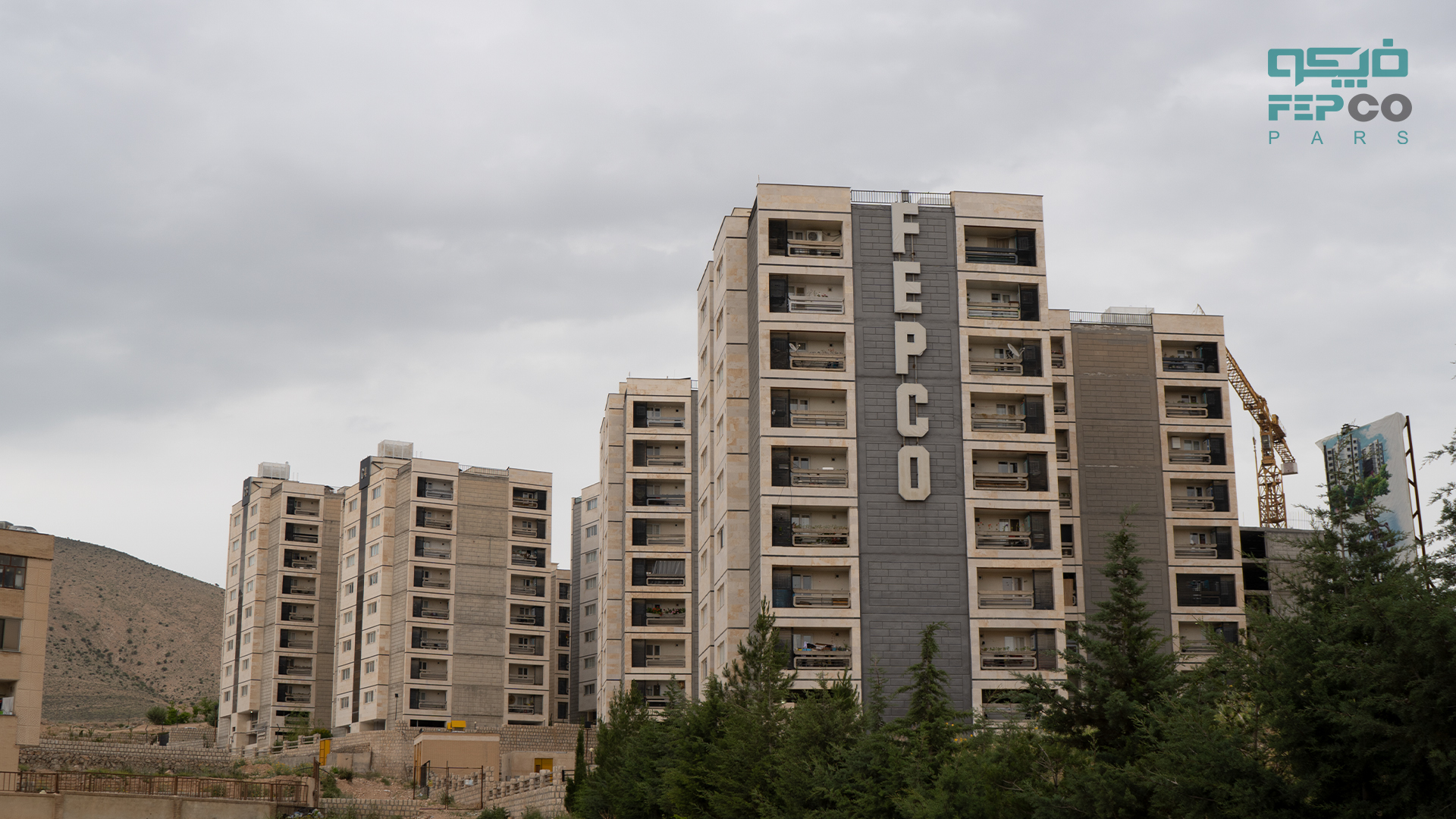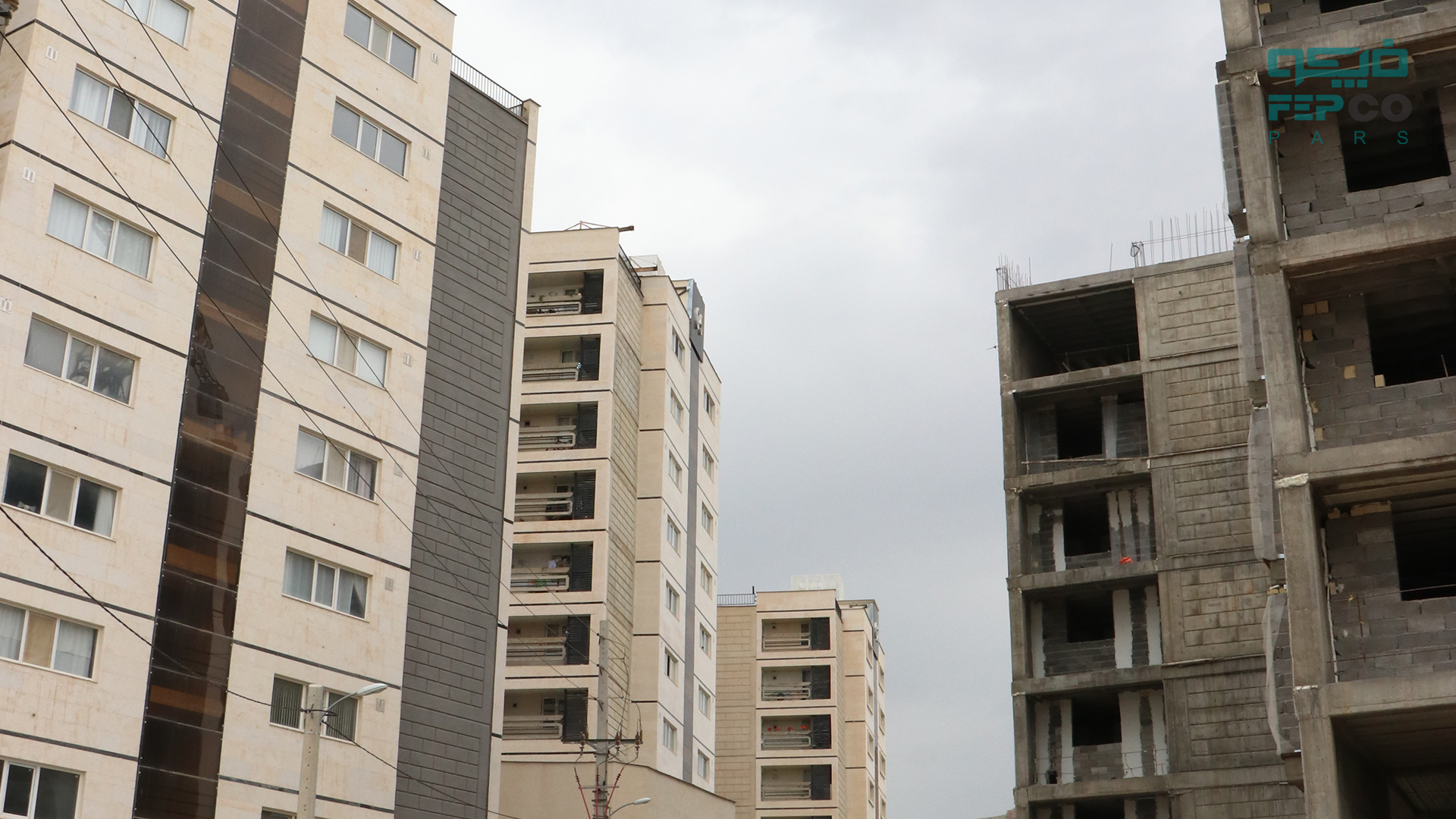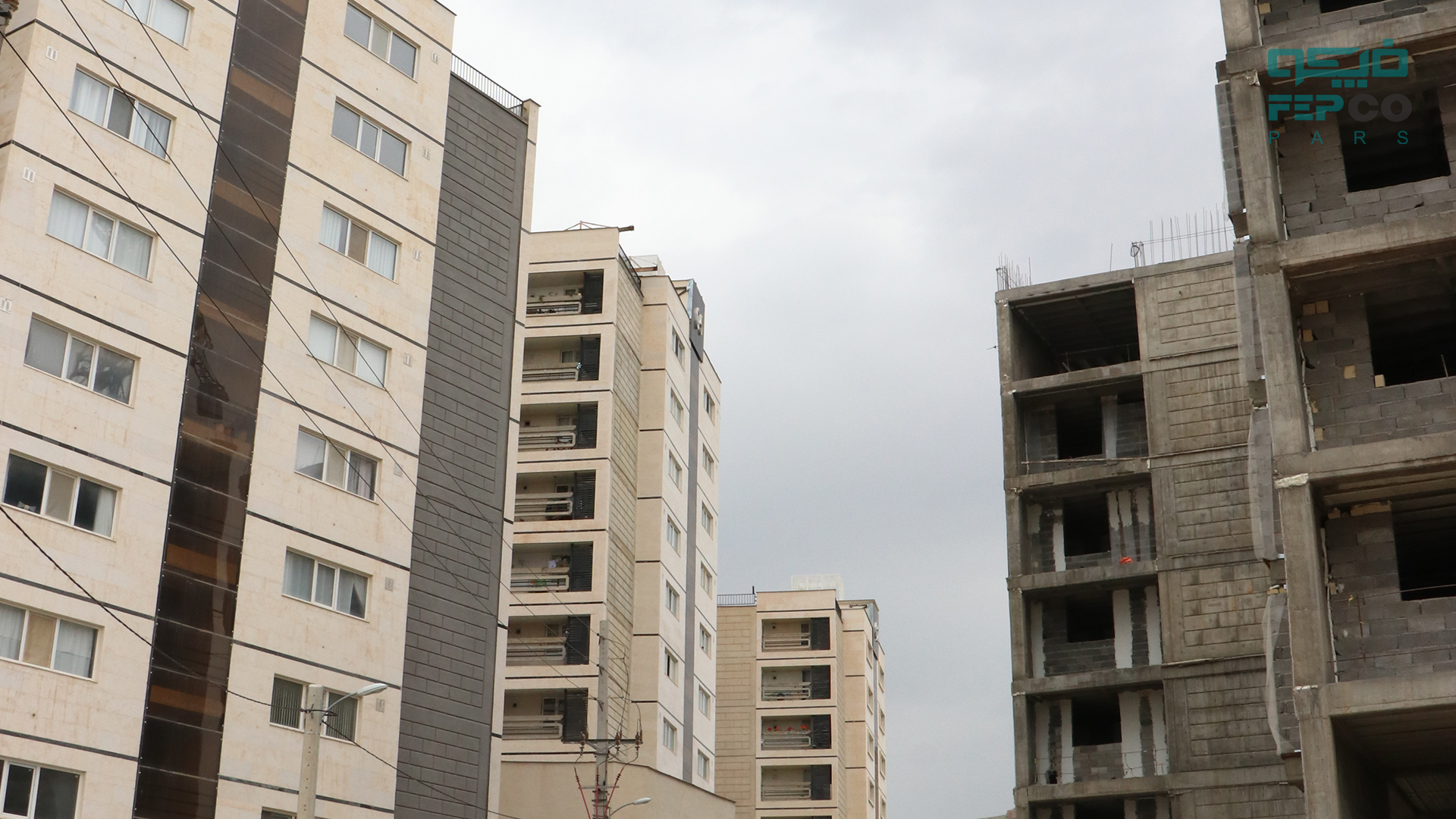This article examines the challenges associated with the “complexities of the construction process,” “key considerations for obtaining a construction permit,” and “legal obstacles.” It provides a comprehensive guide for all individuals and companies involved in the construction industry. The aim is to play an effective role in improving the process of obtaining construction permits and reducing construction-related issues, ultimately assisting contractors and engineers in securing the necessary approvals from municipalities and regulatory bodies.
This article has been produced by the Research and Development Unit of “Fepco ( Saman Mechanic Farayand Energy Pars ).” The purpose of this article is to provide a thorough and precise review of the construction permit process and to explore how to navigate the various complexities and obstacles that contractors and builders of construction projects may encounter along the way.
What is a Construction permit and Why is it Essential for Construction Projects?

A construction permit is a legal authorization issued by government and local authorities, such as municipalities, to carry out construction projects. This permit confirms that the planned construction project complies with relevant construction, safety, health, and environmental regulations. Obtaining a construction permit means receiving official approval to commence construction activities and plays a crucial role in ensuring that construction projects are executed correctly and safely.
Reasons for the Importance of Obtaining a Construction permit:
1. Compliance with Laws and Regulations:
A construction permit ensures that your project is executed according to local and national standards and regulations. These laws include earthquake, fire, health, and environmental regulations that must be adhered to at every stage of construction.
2. Safety Assurance:
Obtaining a construction permit helps ensure the safety of both workers and building occupants. These permits are issued based on thorough evaluations of design and materials used, aiming to prevent unwanted accidents.
3. Preservation of Property Value:
Having a construction permit assures property owners that their property is built legally and with quality, which can positively impact the property’s final value.
4. Avoiding Legal Issues:
Building without a permit can lead to hefty fines, project halts, or even the demolition of the building. Therefore, having a construction permit helps you avoid legal and financial troubles.
5. Provision of Legal Protection:
In the event of any disputes or issues during or after construction, having a construction permit serves as a legal document that can protect you against legal claims.
6. Facilitation in Property Sale and Transfer:
If you wish to sell or transfer your property, having a valid construction permit can simplify the transaction process and gain the trust of buyers.
In summary, a construction permit is one of the critical and essential documents in the process of executing construction projects. Failing to obtain one can lead to serious legal, financial, and safety consequences. This permit is not only necessary for complying with laws and regulations but also plays a significant role in maintaining safety, property value, and facilitating future property-related processes.
Various Stages in the Construction Permit Process and the Challenges Associated with Each Stage

The process of obtaining a construction permit is a complex, multi-step procedure that requires close collaboration with various government agencies and strict adherence to relevant laws and regulations. Each stage of this process presents its own set of challenges, which are detailed below.
1. Preparation and Submission of the Initial Design
– Description: In this stage, the property owner or contractor must prepare the initial design of the construction project and submit it to the municipality or the relevant authority. This design includes architectural, structural, and mechanical plans.
– Challenges:
– The need to collaborate with professional engineers and various specialists.
– Strict adherence to local and national regulations, which may require frequent revisions to the design.
– Obtaining approval of all design details from regulatory bodies.
2. Review and Evaluation of the Design by Relevant Authorities
– Description: After submitting the design, relevant authorities, such as the municipality, environmental agency, and engineering organizations, review the plans to ensure compliance with laws and regulations.
– Challenges:
– The potential need for multiple revisions to the design.
– Delays in the review process due to a high volume of applications.
– Encountering new regulations or changes in the law, which can cause delays in the process.
3. Obtaining Sub-permits and Necessary Approvals
– Description: For certain projects, in addition to the main construction permit, it is necessary to obtain sub-permits such as environmental permits, safety and health permits, and technical approvals from various organizations.
– Challenges:
– Coordination with multiple agencies to obtain the necessary permits.
– The time-consuming process of obtaining approvals due to complex bureaucracy.
– Potential new issues arising at each stage of obtaining approvals.
4. Payment of Fees and Charges Related to Permit Issuance
– Description: After the final design approval and obtaining sub-permits, the owner or contractor must pay the fees and charges related to the issuance of the construction permit.
– Challenges:
– Lack of transparency regarding the exact amount of fees and the possibility of sudden changes in tariffs.
– Financial issues that may delay payment and the receipt of the permit.
– The need for careful budgeting to cover all associated costs.
5. Issuance of the Final Construction permit
– Description: After completing all previous stages and making the required payments, the final construction permit is issued, allowing the project to officially begin.
– Challenges:
– The potential for unexpected problems in the final stages, such as the need for minor design changes.
– Delays in permit issuance due to administrative issues or incomplete steps.
– Encountering new laws that may impact the project’s execution.
6. Commencement of Construction and Continuous Supervision
– Description: After receiving the construction permit, the project can begin. At this stage, ongoing supervision by regulatory bodies is mandatory to ensure the project is carried out in accordance with the issued permits.
– Challenges:
– The need for continuous coordination with regulatory bodies to prevent potential violations.
– Facing execution problems that may require changes to the project.
– The possibility of needing additional permits if changes are made to the initial design.

The process of obtaining a construction permit is a multi-stage and complex procedure, with each stage presenting its own challenges. From the preparation and submission of the initial design to the supervision of construction, each step requires careful attention, coordination, and continuous follow-up to ensure the project is completed legally and with high quality. Being mindful of these challenges and careful planning can help reduce the time and costs associated with obtaining permits and successfully executing the project.
Conclusion
The process of obtaining a construction permit is one of the most important and, at the same time, one of the most complex stages in starting any construction project. This process involves multiple steps, from preparing and submitting the initial design to continuous supervision during project execution, requiring meticulous attention, persistence, and close coordination with various entities such as the municipality and other regulatory organizations.
In this article, prepared by the Research and Development Unit of “Fepco ( Saman Mechanic Process Energy Pars,” we have aimed to thoroughly examine the construction permit process, identifying and analyzing the administrative challenges and complexities associated with it. We have found that overcoming construction obstacles and the challenges related to building regulations requires a comprehensive understanding of the key points for obtaining a construction permit and strictly following the existing steps and guidelines.
One crucial aspect of this process is the timely application for a construction permit and consistent follow-up to obtain construction approval, which can significantly reduce extra time and costs. Additionally, careful monitoring and coordination with regulatory bodies during the project execution are of particular importance in preventing construction issues.
Finally, given the new construction permit regulations and potential changes in this area, it is recommended that companies active in the construction sector continuously study and review the steps for obtaining construction permit s and align their activities with current legal obstacles and regulations to minimize project-related risks.
This comprehensive guide to obtaining a construction permit can serve as a valuable reference for contractors, engineers, and other stakeholders in construction projects, helping them navigate the permit process and succeed in project execution.
By adhering to these principles and planning meticulously, not only can the time required to obtain a construction permit be reduced, but unwanted complications in the construction process can also be avoided, ultimately leading to the successful completion of construction projects.
Frequently Asked Questions
1. What is a construction permit, and why do I need it?
A construction permit is a legal authorization issued by government agencies to ensure that your construction project is carried out in compliance with relevant laws and regulations. Without this permit, construction is illegal and may result in heavy fines, project stoppages, or even demolition.
2. How long does it take to obtain a construction permit?
The time required to obtain a construction permit varies depending on the type of project and its complexity. Factors such as the number of applications, the workload of regulatory agencies, and the completeness of the submitted documents can affect this duration. Generally, the process can take from a few weeks to several months.
3. What are the main steps in the construction permit process?
The construction permit process involves several key stages: preparation and submission of the initial design, review and evaluation by relevant authorities, obtaining sub-permits and approvals, payment of fees and charges, and finally, obtaining the final construction permit. Each of these stages requires careful follow-up and coordination.
4. What obstacles might I face in the construction permit process?
Various obstacles can arise during the construction permit process, including administrative complexities, changes in construction laws, the need for additional sub-permits, and financial issues. Being aware of these obstacles and preparing accordingly can help reduce delays.
- How can I reduce the time required to obtain a construction permit?
To reduce the time required to obtain a construction permit, it is advisable to prepare and submit all necessary documents and designs thoroughly and accurately. Additionally, consistently following up on applications and working closely with regulatory bodies can help expedite the process.
6. What documents do I need to apply for a construction permit?
The required documents for a construction permit application typically include architectural, structural, and mechanical plans, environmental assessment reports, and land ownership documents. Depending on the project type, additional documents may also be required.
7. Do I need a construction permit for all construction projects?
Yes, most construction projects require a construction permit, even for minor alterations to a building. Exceptions may include small home projects or minor repairs, but it is always best to consult with the municipality or relevant authorities to be sure.
8. What should I do if my project has started without a construction permit?
If a project has begun without a construction permit, you should immediately notify the relevant authorities and apply for the permit. The project may be halted until the permit is obtained, and you should be prepared to pay any potential fines.
9. What role does the municipality play in the construction permit process?
Municipalities play a central role in issuing construction permit s. They review submitted plans to ensure they comply with local laws and building regulations. They are also responsible for overseeing project execution and granting final approval.
10. How can I stay informed about changes in construction permit regulations?
To stay informed about changes in construction permit laws and regulations, you can visit official websites such as those of municipalities or the Ministry of Roads and Urban Development. Consulting with legal experts and engineers active in this field can also help you stay updated and align your project with new regulations.



